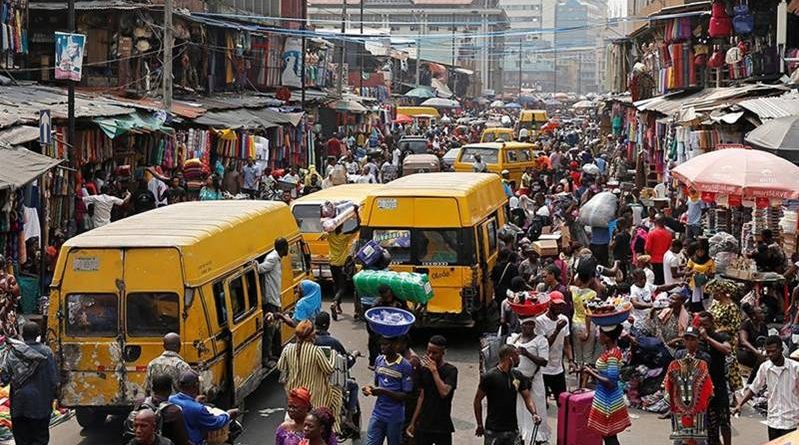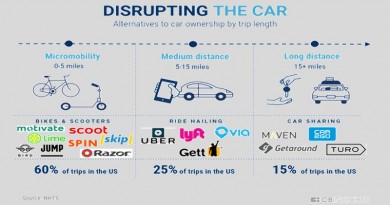Covid-19 Impact Worsens Hunger and the plight of families living in Lagos
The economic impact of the Covid-19 pandemic has worsened the plight of families living in poverty in Lagos State, Nigeria and left many people struggling to afford food and meet other basic needs, Human Rights Watch and Justice & Empowerment Initiatives (JEI) said in a report released today. The number of Nigerians experiencing hunger doubled during the pandemic.
The 87-page report, “‘Between Hunger and the Virus,’ The Economic Impact of the Covid-19 Pandemic on People Living in Poverty in Lagos, Nigeria,” documents how a five-week lockdown, rising food prices, and a prolonged economic downturn have had a devastating impact on informal workers, slum dwellers, and other urban poor families in Lagos. The absence of a functioning social security system meant that government assistance, including cash transfers and food handouts, reached only a fraction of people going hungry.
“The troubling reality of the Covid-19 crisis for many families in Lagos has been hunger and deprivation,” said Anietie Ewang, Nigeria researcher at Human Rights Watch. “With people still battling every day for survival, the pandemic has highlighted the critical need for a functioning social security system that will allow all Nigerians to achieve an adequate standard of living.”
The World Bank forecasted in January 2021 that the Covid-19 crisis will result in an additional 10.9 million Nigerians entering poverty by 2022, defined as people living below the national poverty line of around $1 a day. In Lagos State, high levels of urban poverty – most of the state’s more than 20 million residents live in slums or informal settlements – left people vulnerable to the economic impact of the pandemic.
Between May 2020 and March 2021, Human Rights Watch spoke with more than 60 people from 13 communities in Lagos State, conducting multiple rounds of interviews to document the evolution of the pandemic. Human Rights Watch also analyzed surveys by Nigeria’s National Bureau of Statistics (NBS) and by JEI and the Nigerian Slum/Informal Settlements Federation, an advocacy group for people living in poverty.
Lagos residents said the Covid-19 crisis devastated their already fragile access to food and livelihoods. Margaret Okuomo, a mother of seven in Ago Egun Bariga, lost her job as a cleaner in March 2020. She quickly exhausted her meager savings and was unable to feed her children. “We [have] our fill in the morning, and sometimes at night we just soak two handfuls of garri [a staple made from cassava] and sleep,” she said. Human Rights Watch’s analysis of NBS data found that half of households surveyed nationwide in May, August, and November 2020 had run out of food in the preceding 30 days, compared with a quarter of households surveyed in 2018 and 2019.
Okuomo found a new job sweeping roads in November 2020 but rising food prices mean she is still struggling to make payments on loans incurred during the pandemic. NBS data shows that nearly one third of people surveyed in August 2020 had taken on debt during the Covid-19 crisis. More than half of households used these loans to purchase food.
The economic impact of the pandemic has underscored the importance of the right to social security, which requires states to use a range of measures, such as unemployment benefits, cash transfers, and food assistance, to ensure people can obtain an adequate standard of living.
Prior to the Covid-19 pandemic, Nigeria lacked a functioning social security system, with the World Bank stating in 2019 that only 4 percent of the poorest 40 percent of households had access to any form of social safety net program.
In June 2020, the federal government passed a 2.3 trillion Naira (US$6 billion) Economic Sustainability Plan that included money to expand a federal cash transfer program. Cash transfers reached 921,445 households in March to April 2020 but tapered off as the crisis wore on, benefitting 400,734 households in November and December 2020. The federal and Lagos State government also provided food assistance during the pandemic, with state government officials claiming food handouts reached around 500,000 people.
Cash transfers, food, and other government assistance, however, have fallen far short of need. NBS data from April and May 2020 showed that just over 2 percent of households had received cash transfers since the start of the pandemic and 12 percent had received food assistance, whereas more than half had run out of food in the previous 30 days. By November 2020, just 0.6 percent of households had received cash transfers in the last month and 3.5 percent had received food assistance, while almost half had recently run out of food.
In Lagos, government assistance has had an even more limited reach, in part because of state government delays signing people up for federal cash transfers. Lagos residents, despite making up more than 10 percent of Nigeria’s population, received less than 1 percent of the cash transfers paid nationwide between March and December 2020. A new rapid response cash transfer program, intended to reach an additional 1 million people nationwide, began in January 2021, but at writing was yet to be fully operational.
“We heard about all the money the government was supposed to be getting for Covid-19 – billions of Naira – and the government talked about the food they were distributing, but most of the communities never got any,” said Anthony Sylvanus, a community health worker in Lagos and Federation member.
In response to the Covid-19 pandemic, the government has increased its focus on expanding social safety nets. Key reforms should include legal recognition of Nigerians’ right to social security, national and state-level strategies to realize that right, the expansion of cash transfers and other programs used to respond to the Covid-19 pandemic, and new entitlements, such as unemployment benefits for informal workers, that are key elements of an effective social security system.
“Increased investment in social security should be one of the key changes brought about by the Covid-19 pandemic,” Ewang said. “The federal and state governments, as well as Nigeria’s international partners, should ensure families can navigate the pandemic’s devastating economic impact with dignity.”
SOURCE Human Rights Watch




